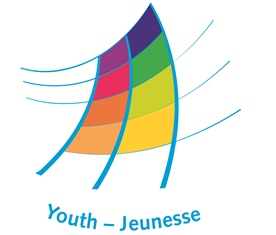Task force
The task force is an ad hoc body composed of relevant stakeholders in youth work in Europe. Its aim is to elaborate a mid-term strategy for the knowledge-based development of European youth work. It will work from January 2018 to December 2019 during which time it will meet at least twice a year.
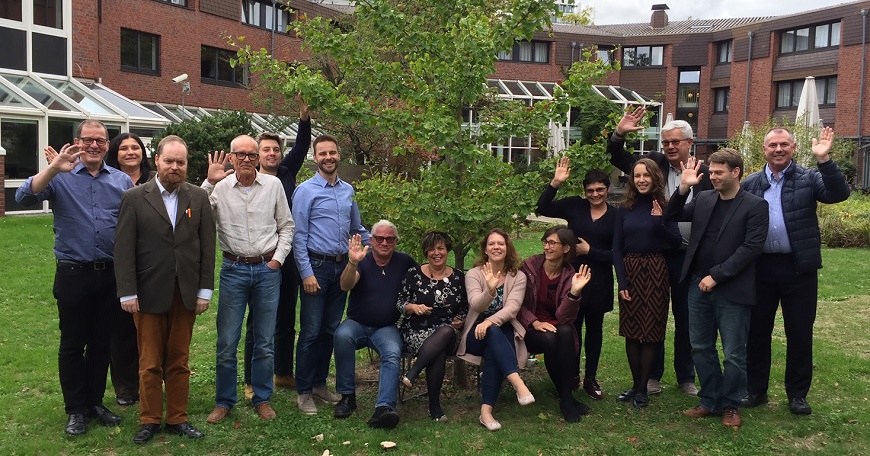
What is the task force?
Its aims are to:
- improve co-ordination of and access to youth work knowledge and resources at European, national, regional and local levels;
- further support the exchange of youth work practices, peer learning and the creation of sustainable networks and partnerships;
- stimulate co-operation within the youth sector and among sectors and fields of expertise wherever youth work takes place in order to reinforce ties, in particular between formal education and youth work and between public authorities, the private sector and civil society;
- strengthen the dialogue between youth work, youth policy and youth research;
- strengthen the capacity of youth work to respond to the changes and trends in our society and the emerging challenges faced by young people;
- carry out a mapping exercise on existing education and training (such as vocational training and higher education) and existing systems for validation of competences for paid and volunteer youth workers;
- develop a range of assistance measures to support member States in taking forward and implementing Recommendation CM/Rec(2017)4.
Who are the stakeholders?
- European Steering Committee for Youth (CDEJ);
- Advisory Council on Youth (CCJ);
- European Youth Forum (YFJ);
- Pool of European Youth Researchers (PEYR);
- National Agencies for the Erasmus+ Programme;
- Network of the Council of Europe Quality Label for Youth Centres;
- Intercity Youth (European Network of Local Departments for Youth Work);
- Expert involved in the formal education of youth workers;
- Expert involved in developing occupational standards for youth workers;
- Council of Europe Youth Department.
The European Commission has observer status.
Additional participants and experts may be invited to enlarged meetings to allow for wider consultations (for example, additional representatives of the CDEJ and CCJ, representative of youth workers trade unions, representative of European youth capitals, etc.).
What has already been done?
From left to right: Jan Vanhee (CDEJ), Liva Vikmane (YFJ), Florian Cescon (Youth Department), Howard Williamson (Expert), Milosh Riskovski (CCJ), Marta Medlinska (Partnership).
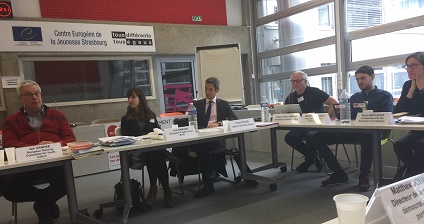
Developing a Common European Youth Work Agenda: with the approval of the Joint Council on Youth, the task force will support a more dynamic European process of youth work development by drawing up a strong European policy agenda on youth work, to be co-ordinated by the Council of Europe with the European Commission. Member states, the Joint Council on Youth and other stakeholders at all levels will play a proactive role.
To sustain this Youth Work Agenda, the task force will provide guidance to member states on how to improve their youth work policies, based on the policy recommendations in the Recommendation.
A second meeting was held in Budapest on 4 and 5 July 2018. The task force held very fruitful exchanges, discussing in particular the idea and members’ understanding of a common European youth work agenda between the Council of Europe and the European Commission. A number of concrete support measures for the implementation of the youth work recommendation were discussed, for example a youth-friendly version of the recommendation or handbook to help the community of practice with its implementation. The meeting was preceded on 3 July by a preliminary exchange of views on the 3rd European Youth Convention.
During the third meeting in Helsinki on 18 and 19 February 2019, the task force continued its reflections on promoting and facilitating implementation of the recommendation.
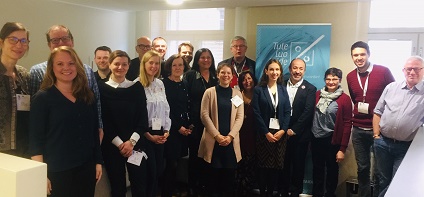
From left to right: Marta Medlinska (Youth Partnership), Hans-Georg Wicke (JUGEND für Europa), Anja Olin Pape (Chair of the CCJ and CMJ), Axel Stammberger (Federal Ministry for Family Affairs, Senior Citizens, Women and Youth), Vanja Kalaba (Centre for Youth Work), Jonas Agdur (InterCity Youth), Corina Robertson-Liersch (European Commission), Tim O'Donoghue (KDYS Youth Centre), Seija Astala (CDEJ), Sebastian Vogt (CCJ), Antje Rothemund (Head of the Youth Department), Barbara Schmidt Dos Santos (JUGEND für Europa), Jan Vanhee (CDEJ), Miriam Teuma (Chair of the CDEJ), Liva Vikmane (YFJ), Rui Gomes (Youth Department), Tanya Basarab (Youth Partnership), Milosh Ristovski (CCJ), Howard Williamson (Expert).
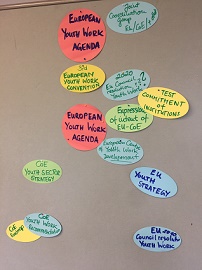
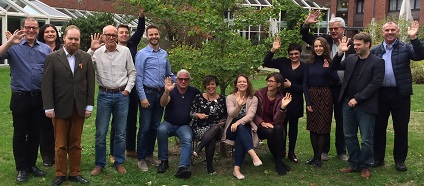
From left to right: Hans-Georg Wicke (JUGEND für Europa), Antje Rothemund (Head of the Youth Department), Jacob Kornbeck (European Commission), Jonas Agdur (InterCity Youth), David Neuber and Sebastian Vogt (CCJ), Howard Williamson (Expert), Miriam Teuma (Chair of the CDEJ), Barbara Schmidt Dos Santos (JUGEND für Europa), Marta Medlinska and Tanya Basarab (Youth Partnership), Liva Vikmane (YFJ), Jan Vanhee (CDEJ), Axel Stammberger (Federal Ministry for Family Affairs, Senior Citizens, Women and Youth), Tim O'Donoghue (KDYS Youth Centre).
Other youth sector activities that support youth work
- Council of Europe Youth Work Portfolio: this is an online tool to help those doing youth work, primarily youth workers and youth leaders, to assess and further develop their youth work competences.
- Partnership between the European Commission and the Council of Europe in the field of youth: the partnership has carried out a mapping of educational and career paths of youth workers.
- The partnership is supporting the work on the recommendation through its History of Youth Work project and the Youth Knowledge Books series, the latest being Thinking Seriously about youth work and how to prepare people to do it.
- Long-term Enter! training courses for youth workers: these support local youth workers to apply European youth work standards and values as developed by the Council of Europe.
- Quality Label for Youth Centres: a lot of local youth work happens in youth centres, the Quality Label Network has extensive experience to bring to the table. In essence, they do youth work where young people are.
- The YFJ policy paper on youth work (2014), puts young people at the centre of youth work and talks about recognition and quality development. It is advocating a strong focus on youth work in the next EU Youth Strategy.
Meetings of the task force
Meetings of the task force
First meeting of the task force, 7 and 8 February 2018, European Youth Centre Strasbourg
Second meeting of the task force, 4 and 5 July 2018, European Youth Centre Budapest
Third meeting of the task force, 18 and 19 February 2019, Helsinki
Fourth meeting of the task force, 3 and 4 October 2019, Bonn.
Other Council of Europe events and projects
Events to take place in 2020
- Publication "Youth work in the spotlight", Guide to the implementation of Recommendation CM/Rec(2017)4
- EYF support projects on youth work
- 3rd European Youth Work Convention, 7-10 December 2020, Bonn, Germany. Organised in the framework of the German Presidency of the Council of the European Union and the German Chairmanship of the Committee of Ministers of the Council of Europe
- Youth Policy advisory mission to Georgia (on the development of a development of a National Youth Strategy 2020-2025, 2nd semester 2020 (date tbc)
- "50/50" training course for youth work stakeholders in Georgia", 24-28 February 2020, EYC Strasbourg
In 2019
- Seminar on “Education and training pathways of youth workers”, organised in the framework of the Finnish Chairmanship of the Committee of Ministers: Helsinki, 20-22 February 2019
- Recommendation informing All-Ukrainian Youth Workers’ Association meeting in Lutsk (November 2019)
- Enter! Youth Week events, French CM Chairmanship events highlighted the role of youth workers and of youth work in social inclusion of young people: Strasbourg, July 2019
- Review of the Enter! recommendation collected updates on national and local policy and youth work initiatives (underway)
- At least four study sessions on youth work development and recognition (including one with ECYC)
- One training for managers and educational staff of the youth centres in the Quality Label network: Plovdiv, May 2019
- Youth.Together Long-Term Training Course on youth work for young refugees: November 2018-December 2020
- Projects and activities on youth work to be financed by the European Youth Foundation
- Internet site (pending availability of technical and financial resources): autumn 2019
- Youth policy advisory mission to Cyprus (on the development of training and educational paths for youth workers, in line with the Recommendation, and on the youth work development in general): Nicosia, 3-5 April 2019
- Youth policy advisory mission to Georgia (on a participatory youth policy, including the role of youth work in the national youth policy): Tbilisi and Rustavi, 24-26 September 2019
- National seminar on using the Youth Work Portfolio to support youth work and user analysis of the Youth Work Portfolio
In 2018
- Training course for the educational staff of the youth centres in the Quality Label network: Marienthal, 26 February - 1 March 2018
- Meeting of the European Platform of Youth Centres: Budapest, 4-6 June 2018
- Projects and activities on youth work financed by the European Youth Foundation
- At least four study sessions on youth work development and recognition
- Seminar on the implementation of the ENTER! and youth work Recommndations in the Russian Federation: Kazan, 9-12 October 2018
- "Postcard" (snapshot of the key recommendations, inviting the reader to consult the Recommendation online), published October 2018
- Recommendation presented in Bridges for Trainers Conference: Prague, 26-30 November 2018
- ENTER! Support training seminar for local, regional and national stakeholders involved in youth work in Romania: Padureni, 24-26 August 2018
- ENTER! Training Course on access to social rights for young people from disadvantaged neighbourhoods: Turin, 10-12 December 2018
Other events and projects organised by the EU-Council of Europe partnership in the youth field
Events to take place in 2020
- MOOC on Essentials of Youth Work
In 2019
- Publication of “History of youth work” (volume 7)
- Youth Knowledge Book on Education and Training of Youth Workers
- Presentation of the Mapping study in the Youth Working Party meeting: Brussels, 11 July 2019 and in the Conference Inspiring Dreams: Challenges to development of youth work: Veliko-Turnovo, 10 September
- Peer-learning seminar on strengthening the potential of youth work in Eastern Europe and Caucasus, under Georgian CM Chairmanship: Tbilisi, 27-29 November
- Content development for a MOOC on Youth Work Essentials
- “Europe goes local” strategic partnership closing conference, 4-6 June 2019, Brussels
In 2018
- Workshop on "Learning from the history of international youth organisations and their impact on youth work practice today": Ljubljana, 2-4 October 2018
- Peer learning seminar on the role of youth work in supporting youth policy-making in South East Europe: November 2018 (13-15 November, Ljubljana)
- Publication of "History of youth work", volume 6 focusing on the social dimension of youth work
- Publication of Youth Knowledge Book "Between Insecurity and Hope" on the role of youth work with young refugees
- Presentation of the mapping on the educational paths of youth workers in various national and European fora
Other events and projects organised by partners
In 2019
By Erasmus + and national agencies
- European Academy on Youth Work: Slovenia, 21-24 May 2019
In 2018
By Youth organisations with support from the Council of Europe
- Study session "Play Your Part" co-organised by Rural Youth Europe and the European Confederation of Youth Clubs: Budapest, September 2018
By the Commonwealth
- Commonwealth Conference on Youth Work (including dissemination of Recommendation): Malta, 6-8 November 2018



